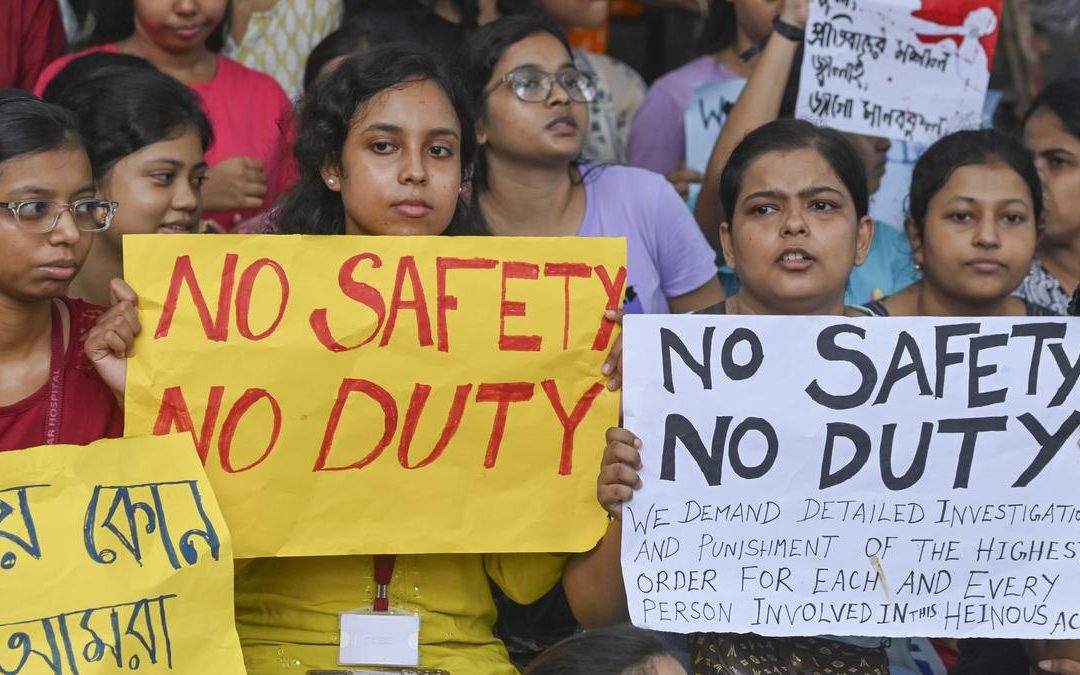NEW DELHI: Amid the nationwide outrage over the brutal rape and murder of a doctor at a government hospital in Kolkata, acid attack survivors are uniting to demand swift and stringent justice. Speaking out in solidarity, Shaheen Malik, founder of the ‘Brave Souls Foundation’ and an acid attack survivor herself, publicly questioned “whether survivors like her will be able to see justice delivered during their lifetime “.
Malik voiced her concerns at a program in the Capital that highlighted the ongoing challenges faced by acid attack survivors. “Whenever we hear of such incidents, it forces us to relive our trauma, reminding us of our vulnerability. It reinforces the fear that perpetrators can easily disrupt our lives. The recent incident in Kolkata is particularly horrific and highlights the persistent danger we face,” Malik stated during the symposium focused on ‘Reintegration – People & Policy,’ organized by the ‘Brave Souls Foundation.’ Survivors at the event called for an immediate and complete ban on the retail sale of acid.
“Until strong and enforceable laws are in place to deter these heinous crimes, our commitment to fighting them must remain unwavering. We need to persistently work towards protecting survivors and advocating for justice, ensuring that these atrocities are not allowed to continue unchecked. Our efforts must be ongoing, focused, and resilient, as we push for meaningful change in the legal system and society,” Malik emphasized.
She also highlighted the isolation and social ostracism that survivors often face, noting that many lose the support of family and friends after an attack, whether it be sexual assault or an acid attack.
“The process of obtaining compensation is equally challenging. First, survivors are often unaware of their eligibility for compensation. It is the state’s responsibility to provide adequate compensation, enabling survivors to live independently. However, the support offered is minimal. Additionally, the compensation process is lengthy and burdensome, filled with numerous formalities, causing many survivors to abandon their claims,” she explained.
Activists pointed out the inadequacies of the current compensation scheme, where rape survivors are entitled to up to Rs 7 lakhs, gang rape survivors can receive up to Rs 10 lakhs, and acid attack survivors are eligible for up to Rs 8 lakhs.
Malik stressed that these amounts fall short, particularly for acid attack survivors who often require 15 to 20 surgeries, each costing around Rs 1 lakh, excluding medication and legal expenses.
Legal advocate Choudhary Ali Zia Kabir underscored the need to invest in judicial infrastructure, including setting up more courts, appointing more judges, and enhancing legal education.
He also advocated for incorporating acid attack issues into judicial training and increasing the representation of marginalized groups within the judiciary. “Three things that activists could do is – to continue doing the wonderful work that they do; petition the courts afresh for banning acid sales; and petition the parliament via a private member’s bill encompassing prevention against acid attack and gender violence, and rights for their survivors,” Kabir suggested.
Aam Aadmi Party’s Rajya Sabha MP Sanjay Singh, who also attended the event, vowed to raise the issue in government and parliament. He pledged to explore the possibility of introducing the matter through a private member’s bill in the upper house.





